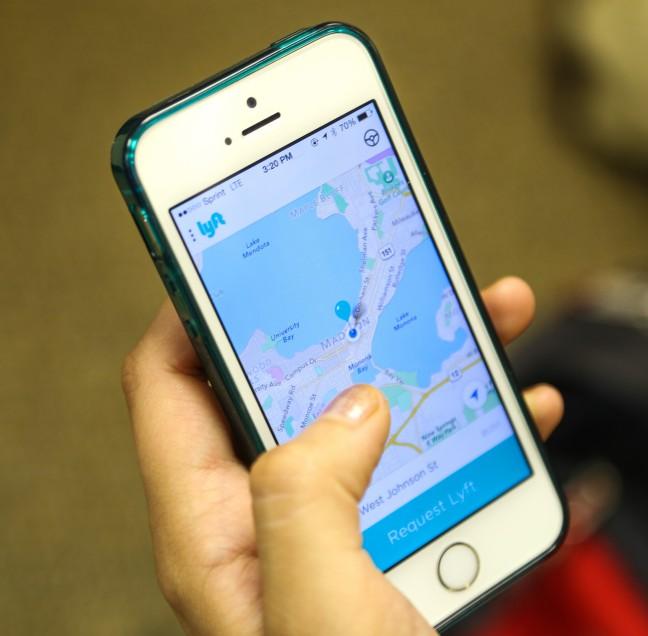Madison Mayor Paul Soglin and his opponent in the mayoral elections clashed Thursday over regulations for taxicabs and rideshare companies like Uber and Lyft.
Soglin and Ald. Scott Resnick, District 8, outlined their differing proposals for regulating app-operated drivers and taxicabs during a city subcommittee meeting.
Soglin said the city government has three functions — distributive, redistributive and regulatory — so it is the government’s job to help the public obtain 24/7 service to all neighborhoods without “price gouging,” a common practice among rideshare companies like Uber and Lyft.
“If we’re going to build a culture that does not use the private automobile, we need to make sure all of these methods of transportation are available,” Soglin said.
But Resnick said he did not oppose allowing surge pricing, which is something the companies have said they need to operate.
“My version gives a pathway forward,” Resnick said. “What does the Madison market look like if the vehicles are here?”
Both Soglin and Resnick said they believe in stronger background checks for drivers, more clarity on insurance policies for the cars and disclosure. Soglin said disclosure would include warranty, insurance, vehicle resale and hidden cost information.
Soglin said the current Uber model has no commercial automotive insurance coverage while the app is off. The app is considered off when a customer is out of the car.
Commenting on the background checks on drivers, Captain Richard Bach of the Madison Police Department said the triple-eye-check, a nationwide criminal background check instead of just statewide, can only be done when there is an investigation into a driver.
Soglin and Resnick, however, both gave examples of situations where people slipped through the cracks of the average background check system.
Soglin said, for example, that two women who used Uber had a driver eavesdrop on their conversation, then proceed to show up at their next location. He did so while flirting with one of the women who described the situation as “creepy.”
Resnick described a similar situation pertaining to University of Wisconsin sorority members who were targeted well before Uber and Lyft began operating in Madison.
In his plan, Resnick emphasized rules and regulations from Milwaukee, Chicago, Minneapolis and Seattle because they share the same values and lens to view the Madison community.
Soglin, however, said “in regards to other states and cities … I don’t care.”
“That’s the bottom line,” Soglin said. “We need to look at the poisoned atmosphere that was created through these passages. Let’s look at Madison, Wisconsin, the community we’ve got, the transportation system we want, the kind of place we want to create and write our own ordinance that fits the society we want.”












